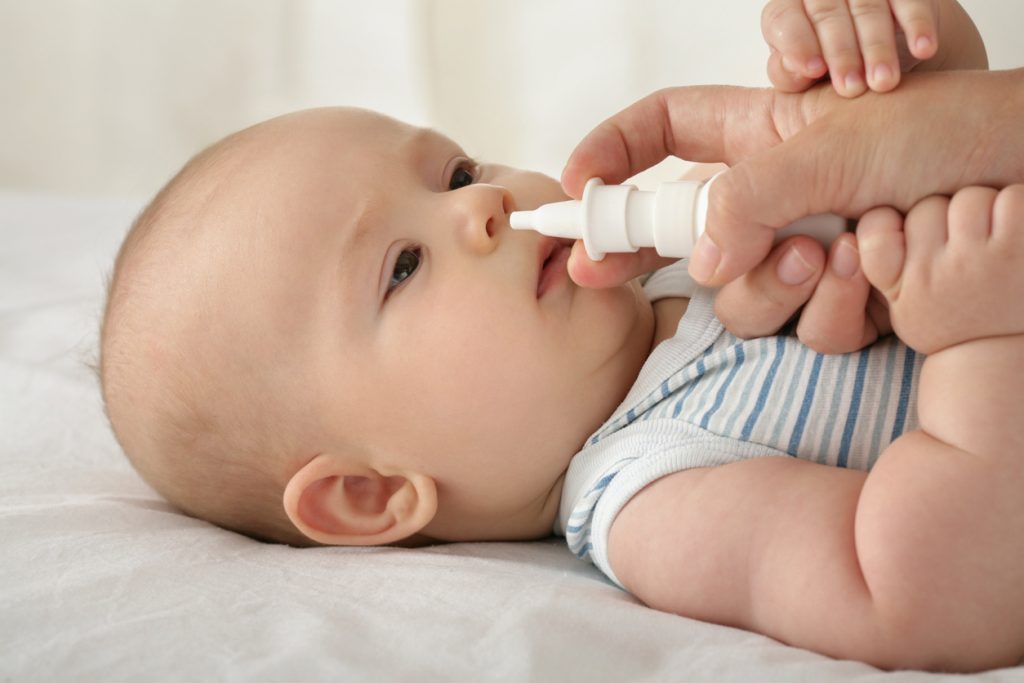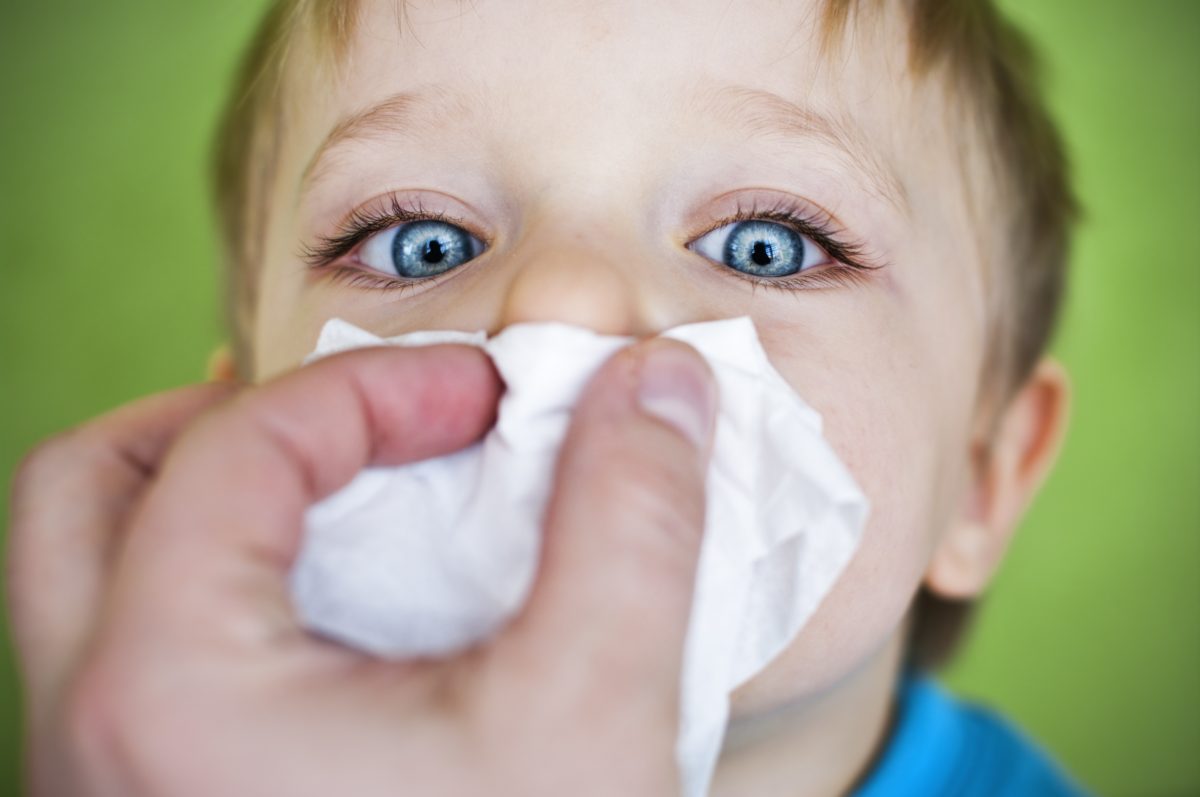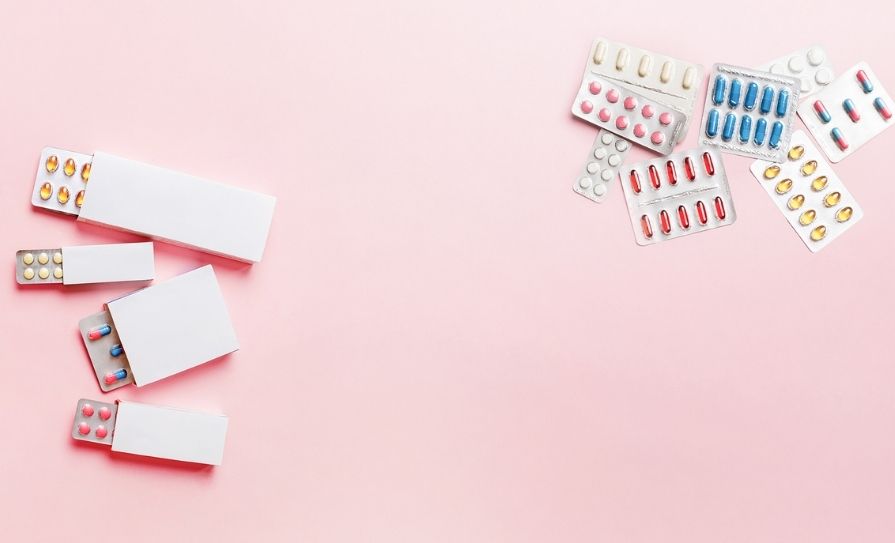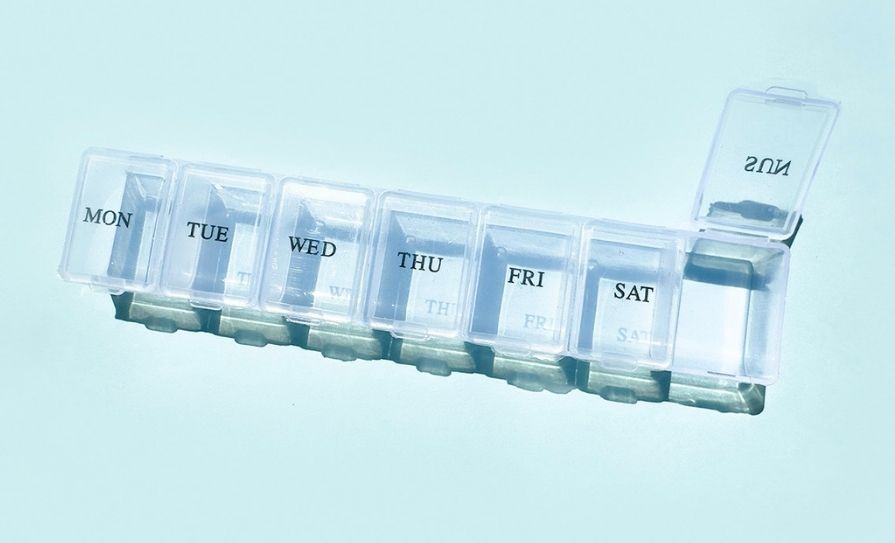An overview of nasal congestion and nasal hygiene in infants and children, a common complaint that causes distress and disruption for children and their carers alike

A stuffy nose is one of the most common complaints in infants and children and is a frequent presentation in the pharmacy. In infants, a blocked or stuffy nose can interfere with sleeping and feeding. There are certain circumstances where parents and carers should seek immediate medical advice, such as when the child has fewer wet, heavy nappies than usual, is drinking less than usual, or is difficult to wake for feeding.
Other symptoms that should raise concerns include: Fits or convulsions; if the infant is floppy or pale; appearance of a purple-coloured rash; if the baby is difficult to settle or has a high-pitched cry; a bulging fontanelle; or a high temperature (above 38C for babies aged under six months, above 39C for babies and children aged over six months).
However, in most cases, the nasal congestion is caused by the common cold or viral infection, to which young children are susceptible, particularly if the child is of an age where they may be mixing with other young children in crèches, for example. In some cases, a blocked or stuffy nose can be caused by allergies. In the vast majority of these instances, the pharmacist can help by providing advice and recommending appropriate products to help alleviate the symptoms and discomfort until the infection has resolved.
Saline irrigation
A 2014 literature review illustrated that viral upper respiratory tract infections (URTIs) are commonly found in neonates and infants with a blocked nose. In these cases, saline irrigation alleviates congestion, reduces excess mucus and improves breathing overall. While the use of mechanical irrigation methods is not well documented, the authors stated that in children with allergic rhinitis (AR) or acute sinusitis, proper use of nasal saline irrigation significantly improved symptoms in infants and children.
The authors described how the use of “isotonic and hypertonic saline solutions to relief [sic] nasal congestion in infants and children is widespread; it is a safe and valuable therapeutic support, and can reduce the use of medications (antihistamines, decongestant, antibiotics, corticosteroids) during the treatment of URTIs.” The use of saline solutions may therefore be particularly appealing to parents or carers who wish to minimise the use of pharmacological interventions in the infant or young child.
In the first year of life, a baby will typically experience up to seven colds, or more if they spend time in childcare facilities. A congested or runny nose is among the first symptoms of a cold in babies, potentially accompanied by a nasal discharge — this may be clear at first, but may also thicken and turn green or yellow. This can be accompanied by difficulty breathing, raised temperature, coughing, irritability and sneezing. Difficulty sleeping may also occur, which is distressing not only to the child, but also for the parents’ or carers’ quality of life.
Immune systems
Babies and infants are also particularly susceptible to the common cold and other infections due to their immature immune systems, as they have not yet been exposed to the viruses that cause them. As the baby is exposed to these viruses, they become immune to them, however URTIs can be caused by a variety of more than 100 viruses, of which rhinoviruses are the most common.
A 2014 study on pre-school children in Northern Italy looked at the level of awareness among paediatric care physicians regarding the use of nasal saline irrigation. Some 860 anonymised responses were received from the physicians and the results showed that an overwhelming majority, 99.3 per cent, regularly used nasal saline irrigation in the treatment of their infant patients. However, it also revealed that the practicing paediatricians found nasal saline irrigation to be of value as a prophylaxis.
The paediatricians prescribed nasal saline irrigation on a daily basis for healthy children, and more often for children with an illness. However, the need for compliance from the parent or carer was noted and therefore the need for good communication with parents to stress the importance of nasal saline irrigation was emphasised. “In Northern Italy, most primary care pediatricians prescribe NSI [nasal saline irrigation] for both the prophylaxis and therapy of upper respiratory tract problems in pre-school children,” wrote the authors. “However, many aspects of the procedure are not clarified, and this reduces parental compliance. Given the medical and economic advantages of NSI, this situation should be changed as soon as possible.”
Therapies
There are a number of products pharmacists can recommend at the counter to parents and carers whose children are suffering with nasal congestion. Among these are the Clear Little Noses isotonic nasal cleansing solution, which is suitable for infants aged over one month. The product is natural and free from preservatives and comes in the form of paediatric aqua drops formulated to promote easier breathing and clear nasal congestion naturally. It also has a preventive mechanism of action, in that it evacuates mucus, therefore helping to prevent colds, allergic rhinitis and other potential health complications resulting from blocked or stuffy nasal passages.
Another option is Sterimar Baby, which also aids easier breathing and is suitable for children aged 0-to-3 years. It is a natural isotonic solution and is based on sea water to help clear a baby’s nose and stimulate the natural defences of the nasal lining. It incorporates a specially-designed nozzle for easy application.
Another product option is the Snufflebabe Nasal Aspirator, which physically clears the baby’s nose to provide instant relief from congestion. The aspirator is suitable for use from birth and includes two reusable filters to suck visible mucus from the nasal passage for easier feeding and to improve sleep quality. It is non-invasive and provides continuous, gentle, controlled suction.
Parents and carers can be consulted at the counter to establish their preference for the treatment option that best suits the needs of their child, based on the type and level of congestion. Please see the detailed product specifications for any of the above options for more detailed information of their application and mechanism of action.
References
- Derbyshire Healthcare Support, ‘Illness’, http://www.dchs.nhs.uk/home/our-services/find_services_by_topic/healthvisiting/advice_guidance/illness, accessed August 2020.
- G Chirico et al, Nasal congestion in infants and children: A literature review on efficacy and safety of non-pharmacological treatments. Minerva Pediatr, 2014 Dec;66(6):549-57.
- Mayo Clinic, ‘Common Cold in Babies’, https://www.mayoclinic.org/diseases-conditions/common-cold-in-babies/symptoms-causes/syc-20351651, accessed August 2020.
- P Marchisio et al, Nasal saline irrigation in preschool children: A survey of attitudes and prescribing habits of primary care pediatricians working in northern Italy. Ital J Pediatr. 2014; 40: 47, doi: 10.1186/1824-7288-40-47.







